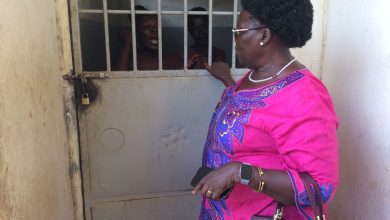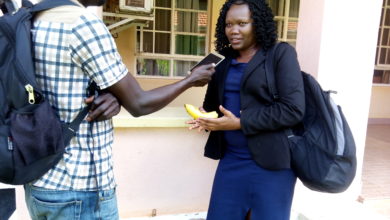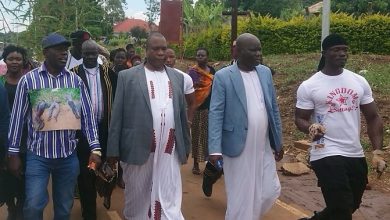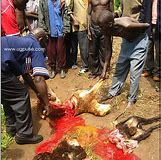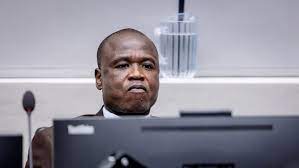
Global Politics
UGANDA: NORTHERN UGANDA CONFLICT, WAR REPARATION IS SATIRE VISA-VISE UKERNIE COMPAIGN ON REPARATION.
The big question put forward is the Northern Uganda war reparations differ from the world affected conflict situation the likes of Ukraine and Zaza strife.
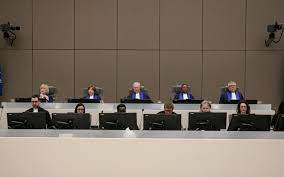
The present reparations order is for collective community-based reparations against Mr. Ongwen, to be made through the TFV pursuant to rules 98(3) of rules. Chamber’s determination jurisprudence is indeed clear in the issuing an order for reparations against the convicted person and acting through the Trust Fund are not mutually exclusive concepts
The International Criminal Court ICC, the court legal framework, does not provide for any deviation from the principle of accountability’ 429 and clearly establishes that an order for reparations has to be issued in all circumstances against the convicted person.
Thus, when appropriate, such an order for reparation can in addition be made through the trust fund, the ICC statement further 430. Reveals that this is based on the fact that, the obligation to repair harm arises from the individual criminal responsibility for the crimes which caused the harm and, accordingly, they are found to be criminally responsible for those crimes, in the person to be held for reparations.
GULU CITY. WED. 6, FEB. 2024.
The ICC outreach for East Africa, calls for Lord Resistance Army LRA, the Ongwen situation, the general consideration 85. As discussed in more detail below. The Chamber has decided to award collective community-based reparations in the present case 432, the ICC outreach recalled.
Maraia Kamara who is currently on sensation in Northern Uganda says the Chamber finds apparitions rather than identifying the eligibility criteria for reparations orders are implementation stage 96.
The Camber thereafter indicates the categories of eligible victims entitled to benefit from reparations in the present case in orders are intrinsically linked to the individual whose criminal liability is established in the conviction and whose culpability for those criminal acts is determined in sentence.
The ICC outlined the area of reparation to be determined by reference to the territorial, temporal, and subject matter scope of the crimes for which Mr. Ongwen was conceited. 4352. Direct victims 97.
Maria Kamara confirmed that the ICC ruled that natural and legal persons are eligible for reparations as direct victims if they can demonstrate, to the relevant standard of proof, that they suffered harm as result of at least one of the following crimes.
The location for the victims of attacks at or near the Internal Displaced People Camps IDP of Pajule IDP camp, Lukodi and Abok 98. As to the attack at or near Pajule IDP camp. The Chamber recalls its previous finding that on 10 October 2003, LRA fighters, including Mr. Ongwen attacked the camp 436 Pajule and Lapul IDP camps were situated in Aruu County, Pader district.
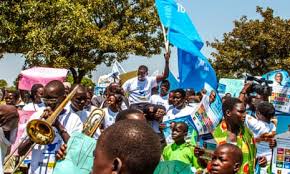
Victims of the attacks at or near the IDP camps of Pajule, Odek, Lukodi, and Abok a) Context of the attacks against the IDP camps of Pajule, Odek, Lukodi, and Abok 98. As to the attack at or near the Pajule IDP camp, the Chamber recalls its previous findings that on 10 October 2003, LRA fighters, including Mr. Ongwen, attacked the camp.436 Pajule and Lapul IDP camps were situated in Aruu County, Pader district. The two camps were across from each other, Pajule on the east side of the Lira-Kitgum road and Lapul on the west.
“The ICC outreach as referred 437 They were commonly referred to, collectively, as ‘Pajule IDP camp’.438 At the time of the attack, an estimated 15,000 to 30,000 people lived in the camp.439 The Chamber refers hereafter to the ‘Pajule attack’ with reference to the crimes committed within the context of the entire attack at or near the Pajule IDP camp on 10 October 2003, as specified herein. 99. Regarding the attack on the Odek IDP camp, the Chamber recalls its findings that, on 29 April 2004, LRA fighters subordinate to Mr. Ongwen attacked the Odek IDP camp. 440 The Odek IDP camp was situated around Odek village in Odek sub-county, Omoro County, Gulu district, and, at the time, was home to between 2,000 and 3,000 individuals.441.” This according to the ICC rules.
According to the rules by procedure of ICC it stated as follows:
EVIDENTIARY MATTERS A.
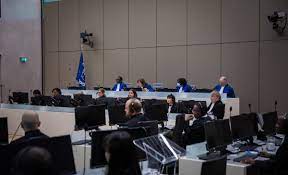
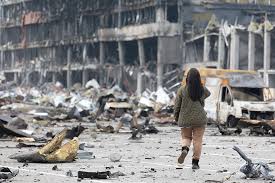
General considerations
- Prior to addressing specific evidentiary matters arising in the course of the reparations proceedings, the Chamber deems it necessary, for the purposes of clarity and consistency, to discuss a number of general evidentiary considerations and principles that apply to this reparations proceeding. While the Chamber offers only a brief overview of such considerations in this initial section, it makes reference to these factors where relevant and applicable in this Reparations Order.
- First, from an evidentiary matters perspective, the Chamber is aware of the importance of adequately explaining how it relied on the parties’ submissions in ruling on the reparations to be awarded in the present case. The Chamber therefore states in a clear and concrete manner how and why it arrived at its conclusions, including monetary figures and amounts to be awarded as reparations.54
During its decision-making process, the Chamber has also been cognizant of the need to articulate any uncertainties or inconsistencies relating to specific calculations or amounts, and to illustrate, where relevant, how these were resolved in favor of the convicted person as required by the Court’s jurisprudence.55 19. Second, the Chamber notes that, per the Court’s case law, a paramount consideration in any determination of an award for reparations is that it must be based on a sufficiently strong evidential basis.56 To achieve this objective, the Chamber has, in addition to considering the evidence submitted during the trial proceedings, conducted an in-depth assessment of and ruled upon a limited but representative Sample of victims’ dossiers in the case file, amounting to 5% of the universe of participating victims, which fairly represents the universe of potential victims entitled to reparations.57 This approach, which is in in line with this Court’s jurisprudence,58 has allowed the Chamber to extrapolate the makeup of the entire group of beneficiaries,
The Chamber further clarified reparation ground as follows:
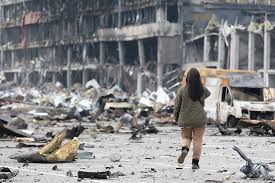
The Chamber resolves the uncertainty in favor of Mr. Ongwen in opting for the number of potential victims identified by the LRVs, which has a stronger evidentiary basis. 2504 The Chamber, therefore, estimates that the number of potentially eligible victims of the attack on the Lukodi IDP camp amounts to approximately 3,248 individuals in total. (iv) Abok IDP camp 723.
The Chamber recalls its findings in the Conviction Judgment referring to estimates ranging from at least 7,000 to just over 13,000 residents in the Abok IDP camp at the time of the attack.2505 The Chamber notes that the evidence presented at trial, while not uniform,2506 suggests that the number of residents of the Abok IDP camp fluctuated significantly, beginning at around 7,000 and increasing to 13,000 sometime before the attack, before diminishing to some 9,000 to 10,000 residents after the attack.2507.
Resources were scarce and lists of residents, which were compiled by the camp’s ‘block leaders’ and conveyed to the camp secretary, were updated infrequently, as a result of which periodic variations in numbers of residents were not necessarily captured as people moved in and out of the camp.2508 724. Although the Registry’s Mapping Report, which identifies approximately 13,000 residents in the Abok IDP Camp at the time of the attack,2509 is consistent with the upper range specified in the Conviction Judgment, it appears that this figure is based on limited information related to numbers and only partly corroborated by unspecified documents and or sources.2510 As such, the Chamber finds the LRV’s identification of 11,2312511 potential named
The big question put forward is the Northern Uganda war reparations differ from the world affected conflict situation the likes of Ukraine and Zaza strife.
News Brief
Press Release / Ukraine 14 December 2023
London / Geneva – A new briefing published by REDRESS and the Global Survivors Fund (GSF) examines the complex reparation landscape for victims in Ukraine, including victims of conflict-related sexual violence, and makes recommendations to deliver comprehensive and holistic reparations to victims.
Ukraine as a State, and victims of gross violations of human rights and serious violations of international humanitarian law, have a right to reparation under international law, to redress the harm they have suffered.
The available reparation initiatives currently in progress for individual victims in Ukraine include judicial mechanisms, including compensation in certain civil cases, and administrative mechanisms which provide compensation to those who have suffered property damage, and reparative measures to those who have suffered human rights violations while in detention. These are currently considered as “assistance” rather than reparations. Prior to the full-scale invasion, reparation had formed part of transitional justice initiatives in Ukraine. However, these initiatives have yet to be translated into a government policy or regulatory framework.
Ukraine has also developed initiatives to address the needs of survivors of sexual and gender-based violence, which has been committed on a larger scale in Ukraine since 2014. One of these initiatives, with the technical support of GSF, aims to develop an Urgent Interim Reparation Programme, set-up a registry of victims, and establish a fund and work on innovative forms of financing reparations, including the repurposing of perpetrators’ assets.
On an international level, the Register of Damage Caused by the Aggression of the Russian Federation Against Ukraine, based in The Hague, will pave the way for a future international compensation mechanism. The International Criminal Court’s Trust Fund for Victims can also implement reparations and support rehabilitation for victims through its Reparations and Assistance mandates respectively, while the European Court of Human Rights still remains a route for victims with respect to violations which have occurred prior to 16 September 2022.
Despite these options, the briefing highlights that the complexity of the reparations landscape results in a lack of clarity as to what reparation means for Ukraine and for victims of the conflict. It recommends that national and international actors develop a holistic understanding of the scope of reparation in the short and long-term for victims, as well as how reparation can be provided alongside efforts towards economic recovery or as part of transitional justice.
The briefing further recommends improving coordination between national and international actors and ensuring that initiatives are survivor-centric, so victims lead from the point of design to implementation. The international community must also play a role in financing reparation for victims of the conflict in Ukraine, including through confiscating perpetrators’ assets and other innovative solutions to fund reparations.
The briefing reflects the discussions from a workshop held in September by REDRESS, GSF and the World for Ukraine Foundation in the context of the World for Ukraine Summit in Rzeszów, Poland. The summit brought together Ukrainian and international lawyers, academics, civil society organizations and policy makers working on the delivery and financing of reparation for survivors of the conflict in Ukraine.
The big question put forward is the Northern Uganda war reparations differ from the world affected conflict situation the likes of Ukraine and Zaza strife.
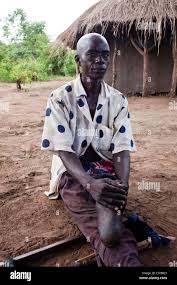
The Political analyst for the Great Lakes underlines that the Internal approach on Gaza and Ukraine, the global North geo-politics view the global South with less interest. The Uterine based reparation is targeting infrastructure development while Northern Uganda LRA reparation targeting the followings:
Today, 28 February 2024, Trial Chamber IX of the International Criminal Court (“ICC” or “Court”) composed by Judge Bertram Schmitt, Judge Peter Kovács, and Judge Chang-ho Chung, delivered in a public hearing its Order on Reparations to victims in the case of The Prosecutor v. Dominic Ongwen. The Chamber set the financial liability of Mr. Ongwen to € 52,429,000 EUR and ordered collective community-based reparations focused on rehabilitation and symbolic/satisfaction measures, consisting of collective rehabilitation programmers, as well as a symbolic award of €750 EUR for all eligible victims, and other community symbolic measures.
Judge Bertram Schmitt, Presiding Judge, read a summary of the Order for reparations against Mr. Ongwen. He explained that the Chamber estimated the number of potentially eligible direct and indirect victims to be approximately 49,772 victims.
The Chamber concluded that the direct victims of the attacks, direct victims of sexual and gender-based crimes, and children born of those crimes, and former child soldiers suffered serious and long-lasting physical, moral and material harm. The indirect victims of all of these crimes suffered moral and material harm. In addition, the entire community of victims suffered community harm, and children of direct victims and children born out of sexual and gender based crimes suffered transgenerational harm.
The Chamber found Mr. Ongwen indigent for the purposes of reparations and encouraged the Trust Fund for Victims (TFV) to complement the reparation awards, to the extent possible, and engage in additional fundraising efforts to the extent necessary to complement the totality of the award.
Noting Mr. Ongwen’s indigence, the Chamber also acknowledges that it would be for the TFV’s Board of Directors to determine whether and when to use its ‘other resources’ to complement the reparations awarded in the present case.

